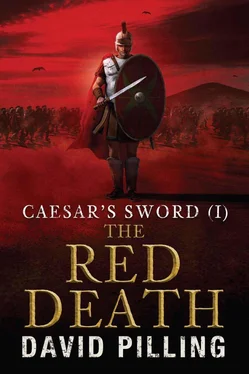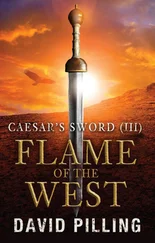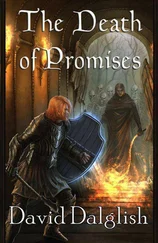David Pilling - The Red Death
Здесь есть возможность читать онлайн «David Pilling - The Red Death» весь текст электронной книги совершенно бесплатно (целиком полную версию без сокращений). В некоторых случаях можно слушать аудио, скачать через торрент в формате fb2 и присутствует краткое содержание. Год выпуска: 2013, Жанр: Исторические приключения, на английском языке. Описание произведения, (предисловие) а так же отзывы посетителей доступны на портале библиотеки ЛибКат.
- Название:The Red Death
- Автор:
- Жанр:
- Год:2013
- ISBN:нет данных
- Рейтинг книги:4 / 5. Голосов: 1
-
Избранное:Добавить в избранное
- Отзывы:
-
Ваша оценка:
- 80
- 1
- 2
- 3
- 4
- 5
The Red Death: краткое содержание, описание и аннотация
Предлагаем к чтению аннотацию, описание, краткое содержание или предисловие (зависит от того, что написал сам автор книги «The Red Death»). Если вы не нашли необходимую информацию о книге — напишите в комментариях, мы постараемся отыскать её.
The Red Death — читать онлайн бесплатно полную книгу (весь текст) целиком
Ниже представлен текст книги, разбитый по страницам. Система сохранения места последней прочитанной страницы, позволяет с удобством читать онлайн бесплатно книгу «The Red Death», без необходимости каждый раз заново искать на чём Вы остановились. Поставьте закладку, и сможете в любой момент перейти на страницу, на которой закончили чтение.
Интервал:
Закладка:
When Leo was done, Rufinus was called forward to support his lies, followed by the others. As I studied their haggard, unshaven faces, I realised that none had ever been my friends, but nor had I counted them as enemies. I was merely a convenient scapegoat, whom they meant to use to save their own unworthy skins.
While they stepped forward, one by one, to speak against me, I tried frantically to think of a way out. I thought of falling back on the physical evidence of torture, of dramatically tearing off my tunic to reveal the half-healed burns on my back. To accuse the Empress of torturing me was an enormous risk, and would only succeed if Narses spoke up as a witness to it.
That was a futile hope. Narses had already indicated that he would give me no support. I couldn’t be certain if Theodora had bought his silence, but it seemed likely. Added to that, the Emperor’s boredom was clearly mounting. If I accused his beloved wife of anything improper, he might make a show of indignant rage and have me condemned as a simple means of bringing the trial to an end.
When the last of the false witnesses had spoken, a senator asked that they be cross-examined by the court. Justinian quashed that with a growl that he wasn’t going to sit and listen to interminable hours of interrogation.
“It’s almost time for lunch,” he added, patting his round belly, “I had hoped for an end to this business before I ate. Is there any physical evidence of this man’s guilt to go with the verbal testimony?”
“None, Caesar,” replied Leo, “save the damage done to your noble city. The scars left by the riots shall take time to heal.”
“As you should know, since you helped to inflict them,” said Justinian with a scowl, “I don’t like your manner, Armenian. I don’t like your face either. If the accused is found guilty, you shall be sent to fight Rome’s enemies somewhere far away. Very far away indeed, very hot and very dangerous.”
“If there is to be no cross-examination, the judgment is submitted to you, Caesar,” said Theodora. I detected a slight note of triumph in her voice, and saw her slender hands curl tighter about the arms of her chair.
The Emperor hesitated, and tugged at his lower lip. He was an intelligent man, and must have appreciated that his wife was twisting and bypassing Roman law for base purposes of revenge. He had recently completed his compilation and re-codification of Roman law, destined to be his most enduring work.
As a result Justinian now enjoyed a reputation as a great law-giver. If he allowed me to be convicted of treason, based on the slanderous allegations of a pack of self-confessed traitors, he risked destroying that reputation.
If there was one thing the Emperor valued, it was his reputation. He was aware that posterity would judge him, and determined to go down in the annals of history as a great man and a great ruler, fit to be counted among the greatest of Caesars. Hence the ridiculous and self-serving titles he gave himself.
On the other hand, his domestic life would be Hell itself if he didn’t give Theodora what she wanted. I could see him weighing all this up as he stroked his chin and studied myself and Leo.
Belisarius chose this moment to intervene. “This trial is absurd,” he said, “the senator was right. There can be no just conviction on the evidence presented.”
He spoke quietly, but his calm, authoritative voice filled the room. I found it difficult to suppress a grin as I watched the Emperor go red in the face, and Theodora’s mask of white paint crack into an angry frown.
“This is none of your affair, General,” she rasped, “you were summoned here as a mere formality. Step down.”
“I shall indeed step down,” he said, “if this brave and loyal officer is condemned without being given a chance to defend himself. I shall resign my commission and retire into private life.”
A gasp rippled around the chamber. Justinian sat bolt upright in his chair, and his mottled face turned a ghastly shade of grey.
“Resign?” he said in a strangled voice, “what in God’s name are you talking about? You would sacrifice your career for the sake of one man?”
Belisarius now indulged his own taste for the dramatic. “Yes,” he said, his words punctuated by a clang of iron as he allowed his helmet to fall to the floor, “but not just for his sake.”
He drew Caledfwlch and held it up before the assembled throng. “This is Crocea Mors, the sword wielded by Aeneas and Julius Caesar and said to be forged on Mount Olympus. Coel recovered it for us, at great risk to himself. How do we repay him for this service? By placing him on trial for his life. I will not stand for it.”
“I summon the shade of Scipio Africanus to witness this farce,” he roared. “He knew us Romans for what we are. Remember the words he had carved in his tomb. Ingrata patria, ne ossa quidem habebis. Ungrateful fatherland, you shall not even have my bones!”
A storm of voices rose in the chamber, some in protest, some in support, as Belisarius raised the sword high above his head and threw it at the Emperor’s feet.
Justinian had seconds to react to this challenge, and to mull over the consequences if Belisarius delivered on his threat to resign. The suspicions over Belisarius’s loyalty must have flared again in his mind. His all-conquering general was too popular to be punished. Much of the North African army had been disbanded, but there were still the Veterans, now swollen to seven thousand men, to be reckoned with. They were by far the largest body of troops in the city.
If Belisarius was using my trial as a pretext to rebellion, there was virtually nothing to stop him seizing the throne for himself. The people would acclaim him, and the city watch and the Excubitors stood little chance against the general’s battle-hardened troops.
I could see beads of sweat glistening on the Emperor’s forehead as his mind wrestled with all this. Theodora was glaring at him, but for once he paid her little heed.
He gestured at the tribune, who stamped his feet and bawled until he was puce for silence. Eventually he got it, and a sort of nervous calm rolled over the courtroom.
Justinian stood up. “Since you choose to turn Roman justice into a circus,” he said, looking hard at Belisarius, “then a circus you shall have. You demand that your officer be given a chance to defend himself. Very well. He shall have it.”
“I am advised that I cannot rely on the testimony of traitors,” he went on, “and there is something in that. I find that the accused cannot be acquitted or condemned on the evidence given. Since the law has failed to determine his guilt, the judgment must be submitted to God.”
I quailed, thinking he meant to turn me over to the Patriarch and his torturers for interrogation. Priests were said to observe little restraint when it came to wringing information out of people, perhaps because they believed Christ would redeem their actions.
“According to the law of God,” Justinian thundered, “no man who is false can defeat another who is true. I judge that the accused shall meet his accuser in single combat in the Hippodrome, a week from now. If Coel wins, then he shall be cleared of all charges and allowed to return to the army. His accusers shall be strangled before the imperial box. If Leo the Armenian wins, the lives of he and his accomplices shall be spared, and they shall be sent to serve in garrisons on the Persian frontier. Coel shall be executed in their stead and his body hung in an iron cage over the city gates, as an example and a warning to all who conspire against the throne.”
Chapter 29
The Emperor was a sophisticated man. He could not really have believed that God decided the fate of mortals in single combat. His real concern was to dispose of me as quickly as possible, and in such a way that would satisfy Belisarius. He needed the general more than ever. The Empire was threatened by enemies on all sides, and Justinian lived in constant fear of another popular uprising.
Читать дальшеИнтервал:
Закладка:
Похожие книги на «The Red Death»
Представляем Вашему вниманию похожие книги на «The Red Death» списком для выбора. Мы отобрали схожую по названию и смыслу литературу в надежде предоставить читателям больше вариантов отыскать новые, интересные, ещё непрочитанные произведения.
Обсуждение, отзывы о книге «The Red Death» и просто собственные мнения читателей. Оставьте ваши комментарии, напишите, что Вы думаете о произведении, его смысле или главных героях. Укажите что конкретно понравилось, а что нет, и почему Вы так считаете.












